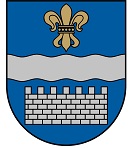Partners


White Young Green Environmental (WYGE) is a multi-disciplinary consultancy providing engineering, environmental, planning and management services. The business provides a high quality, responsive, national service to a diverse range of clients in both the public and private sectors representing industry, commerce, central and local government, financial institutions, private developers, primary service utilities, transport and the retail market. As part of the Department of Trade and Industry (DTI) funded Project Acorn, WYGE designed and market tested the Acorn Method, which was used as a template for BS 8555.
WYGE gained a wealth of knowledge in the use of BS 8555 through developing and market-testing the Acorn Method. This makes WYGE the only consultancy worldwide with such comprehensive experience in the practical application of BS 8555.
Details of WYG projects and annual financial reports are available at www.wyg.com


German Environmental Management Association (BAUM eV) with a membership more than 500 companies of all sizes and sectors, non-profit organizations and public authorities is the biggest European association promoting environmental protection and sustainable business management. An interdisciplinary team of BAUM consultants has extensive experience in research and consulting public institutions in different areas of sustainable development and runs various international projects such as: DG Transport and Energy, RENET, Promote 100, DG Employment and Social Affairs: CapaCity, etc. and Know-How transfer project on Local Agenda 21 between Bavaria and Lithuania.
More information at www.baumgroup.de


Daugavpils City Council. Daugavpils is the second largest city in Latvia. The population of Daugavpils is 113,450 inhabitants. Daugavpils is located approximately 230 km south-east of the capital of Latvia, Riga, on the banks of the Daugava River. The city has a favourable geographical position as it borders on Byelorussia and Lithuania, and in 120 km from the borderline with Russia. Daugavpils is a big industrial centre and railway junction. The industry of the city is represented by energy enterprises and metal-processing plants: JSC "Driving Chain Factory Ditton”, JSC "Dauer-D", JSC "Locomotive", "Zieglera Mashinbuve" Ltd, and others. Apart from that, there are several enterprises of textile, sewing industry and food processing companies. More than 1,100 trading businesses are operating in the city and virtually all main Latvian commercial banks have their branches in Daugavpils. Daugavpils City Council has an experience of participation in various local and international environmental projects, such as:
“Establishment of the Daugavpils Industrial Zone” Financial support: EU PHARE 2000 Total amount: 1,56 mln EUR
“Daugavpils Regional Environment Project”. Research of the environment pollution due to manufacturing and hazardous wastes and working out of the action plan for its prevention Financial support: Ministry of Environment Protection of Latvia and Finland Total amount: 220 900 EUR
Investment programme “500 – “Establishment of the common system of everyday wastes treatment in South Latgale (Daugavpils, Kraslava and Preili districts)"". Establishment of the wastes polygon. Total amount: 15,2 mln EUR
“Daugavpils and Motala – 2010: development of Daugavpils and the analysis of environment”.
Financial support: SWEBALTCOP, city of Motala (Sweden), Total amount: 1 409 200 EUR.
More information at www.daugavpils.lv


Naujene Municipal Council is located in the south-east part of Latgale. It territory is 12939.3 ha, including: forests - 3602.6 ha, arable used land - 6684 ha, arable not used land -2652.7 ha, state owned land -1184 ha. Municipal land - 670.9 ha.
Number of inhabitants 5856 people. Historically municipal functions and operations are provided in four big villages Naujene, Vecstropi, Krauja, and Lociki. Naujenes rural municipality economic development is linked to Daugavpils city. There are 53 villages at the territory of municipality. In the villages: Vecstropi, Lociki, Kraujas, Naujene, Dunski un Židino there are 60 dwelling houses, where 77% of all inhabitants are living. Biological wastewater treatment plants are operating in two villages.
Industrial activities are represented by wood processing, food manufacturing (spirit and cakes), grain processing, heat production, water preparation and supply, transport services. Agriculture – 1600 farmlands and 35 farms. Villagers provide themselves, townspeople and tourists with ecologically clean vegetables, fruits, berries, milk and meat.
More information at www.naujene.lv




